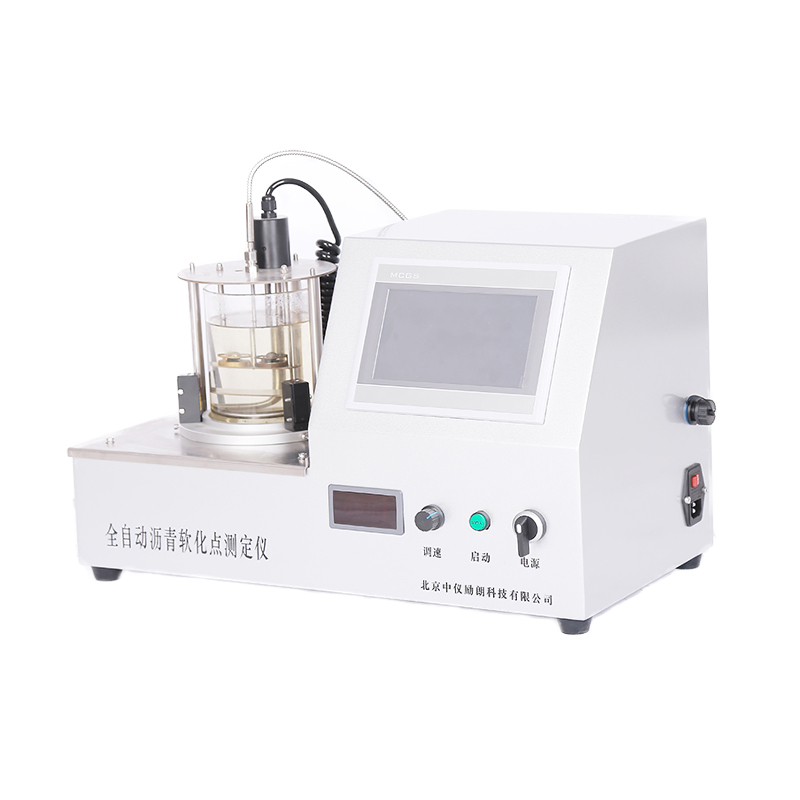Understanding the Asphalt Quinoline Insoluble Matter Tester: Essential Insights for Electrical and Instrumentation Professionals
Aug 04,2025

The Asphalt Quinoline Insoluble Matter Tester is a specialized device designed to measure the quantity of insoluble matter in asphalt when subjected to quinoline. This test is crucial for evaluating the quality and performance of asphalt materials, which are widely used in road construction and various electrical applications.
Asphalt, being a complex mixture of hydrocarbons, contains both soluble and insoluble components. The quinoline insoluble matter refers to the fraction of asphalt that does not dissolve in quinoline, a polar organic solvent. The presence of insoluble matter can indicate the aging or degradation of asphalt, affecting its properties such as durability, flexibility, and resistance to environmental factors. Therefore, assessing the quinoline insoluble matter is essential for determining the overall quality of asphalt products.
The testing process typically involves taking a sample of asphalt and subjecting it to a quinoline solution under controlled conditions. The insoluble residue that remains after the solvent has evaporated is collected and weighed. This weight is then used to calculate the percentage of quinoline insoluble matter in the sample. By adhering to standardized testing procedures, professionals can ensure that the results are reliable and reproducible.
Understanding the implications of the quinoline insoluble matter is vital for professionals in the electrical and instrumentation industry. High levels of insoluble matter may suggest that the asphalt has undergone significant oxidative aging, which can compromise its performance in electrical applications. For instance, in electrical insulation systems, aged asphalt can lead to failures that affect the integrity and reliability of electrical circuits.
Moreover, the Asphalt Quinoline Insoluble Matter Tester plays a pivotal role in quality control processes within manufacturing plants. By regularly testing asphalt samples, companies can maintain consistent product quality, ensuring that their materials meet industry standards and specifications. This proactive approach to quality assurance not only enhances product performance but also mitigates the risk of costly failures in electrical applications.
In conclusion, the Asphalt Quinoline Insoluble Matter Tester is an indispensable tool for professionals involved in the assessment and quality control of asphalt materials. By providing insight into the presence of insoluble matter, this testing device helps ensure the reliability and longevity of asphalt used in various electrical and instrumentation applications. Understanding its functionality and significance can aid professionals in making informed decisions regarding material selection and processing, ultimately leading to better outcomes in their projects.
Asphalt, being a complex mixture of hydrocarbons, contains both soluble and insoluble components. The quinoline insoluble matter refers to the fraction of asphalt that does not dissolve in quinoline, a polar organic solvent. The presence of insoluble matter can indicate the aging or degradation of asphalt, affecting its properties such as durability, flexibility, and resistance to environmental factors. Therefore, assessing the quinoline insoluble matter is essential for determining the overall quality of asphalt products.
The testing process typically involves taking a sample of asphalt and subjecting it to a quinoline solution under controlled conditions. The insoluble residue that remains after the solvent has evaporated is collected and weighed. This weight is then used to calculate the percentage of quinoline insoluble matter in the sample. By adhering to standardized testing procedures, professionals can ensure that the results are reliable and reproducible.
Understanding the implications of the quinoline insoluble matter is vital for professionals in the electrical and instrumentation industry. High levels of insoluble matter may suggest that the asphalt has undergone significant oxidative aging, which can compromise its performance in electrical applications. For instance, in electrical insulation systems, aged asphalt can lead to failures that affect the integrity and reliability of electrical circuits.
Moreover, the Asphalt Quinoline Insoluble Matter Tester plays a pivotal role in quality control processes within manufacturing plants. By regularly testing asphalt samples, companies can maintain consistent product quality, ensuring that their materials meet industry standards and specifications. This proactive approach to quality assurance not only enhances product performance but also mitigates the risk of costly failures in electrical applications.
In conclusion, the Asphalt Quinoline Insoluble Matter Tester is an indispensable tool for professionals involved in the assessment and quality control of asphalt materials. By providing insight into the presence of insoluble matter, this testing device helps ensure the reliability and longevity of asphalt used in various electrical and instrumentation applications. Understanding its functionality and significance can aid professionals in making informed decisions regarding material selection and processing, ultimately leading to better outcomes in their projects.
PREVIOUS:
Contact Us








